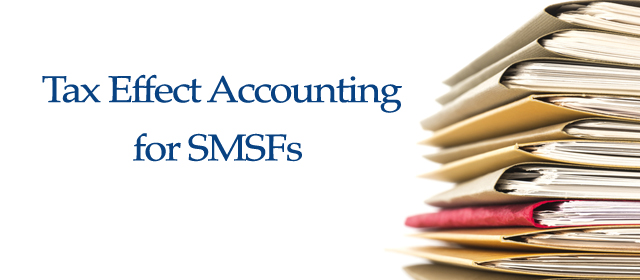In the world of financial planning, one term that often pops up is “SMSF financial advice.” But what exactly does it mean, and why is it important? If you find yourself scratching your head over this term, fear not! This comprehensive guide aims to explain this financial advice, breaking down its key components and providing you with everything you need to know to navigate this aspect of financial planning with confidence.
Understanding SMSF Financial Advice
SMSF stands for Self-Managed Superannuation Fund, which is essentially a private superannuation fund that you manage yourself, rather than relying on a third-party fund manager. SMSFs offer individuals greater control over their retirement savings, allowing them to make investment decisions tailored to their specific financial goals and risk tolerance.
Financial professionals provide SMSF financial advice to individuals who are either considering establishing an SMSF or already have one in place. This advice covers various aspects, including setting up the fund, investment strategies, compliance requirements, and retirement planning.
The Importance of SMSF Financial Advice
Navigating the complexities of SMSFs can be daunting, especially for those without a background in finance. That’s where SMSF financial advice becomes invaluable. Here’s why:
1. Tailored Solutions:
Every individual has unique financial circumstances and goals. SMSF financial advisors assess your situation and provide personalised advice and strategies to help you achieve your retirement objectives.
2. Compliance and Regulations:
SMSFs are subject to strict regulatory requirements imposed by the Australian Taxation Office (ATO). Non-compliance can result in penalties or even the loss of your fund’s concessional tax treatment. Professional advice ensures that your SMSF remains compliant with all regulations.
3. Investment Expertise:
Making sound investment decisions is crucial for the long-term success of your SMSF. Financial advisors bring expertise in asset allocation, risk management, and investment selection, helping you build a diversified portfolio aligned with your risk tolerance and financial goals.
4. Retirement Planning:
Planning for retirement involves more than just accumulating wealth; it requires careful consideration of factors such as pension strategies, estate planning, and tax optimisation. SMSF advisors guide you through the complexities of retirement planning, ensuring that you can enjoy a comfortable retirement lifestyle.
What Does SMSF Financial Advice Cover?
Now that we’ve established the importance of SMSF financial advice, let’s delve into the specific areas it covers:
1. Establishment and Structuring:
Advisors assist you in setting up your SMSF, ensuring that it is structured in a tax-efficient manner and aligns with your retirement objectives. This includes drafting the trust deed, appointing trustees, and registering the fund with the ATO.
2. Investment Strategy:
Developing an investment strategy is perhaps the most critical aspect of managing an SMSF. Advisors help you define your investment objectives, assess your risk tolerance, and create a diversified portfolio comprising asset classes such as equities, property, fixed income, and cash.
3. Compliance and Administration:
SMSFs are subject to strict compliance requirements, including annual audits, reporting obligations, and adherence to investment restrictions. Advisors help you navigate these regulations, ensuring that your fund remains compliant at all times.
4. Risk Management:
Mitigating risks is essential to safeguarding your retirement savings. Advisors conduct risk assessments to identify potential threats to your SMSF, such as market volatility, liquidity risks, and legislative changes, and implement strategies to minimise these risks.
5. Retirement Planning:
As you approach retirement age, advisors help you transition from wealth accumulation to retirement income planning. This involves evaluating pension options, determining optimal withdrawal strategies, and maximising entitlements to government benefits such as the Age Pension.
6. Estate Planning:
Effective estate planning ensures that your assets are distributed according to your wishes upon your death. SMSF advisors work with you to develop comprehensive estate plans, including the nomination of beneficiaries, the establishment of binding death benefit nominations, and consideration of tax implications.
Choosing the Right SMSF Financial Advisor
Selecting the right advisor is crucial to the success of your SMSF. Here are some factors to consider when choosing an SMSF financial advisor:
1. Qualifications and Experience:
Look for advisors who hold relevant qualifications, such as Certified Financial Planner (CFP) or SMSF Specialist Advisor (SSA) accreditation. Additionally, consider their experience in advising clients on SMSFs and their track record of success.
2. Fee Structure:
Understand how the advisor charges for their services. Some may charge an hourly rate, while others may work on a fixed fee or percentage of assets under management basis. Select a fee structure that meets your preferences and financial situation.
3. Fiduciary Duty:
Verify that the advisor is acting in your best interest and that they have a fiduciary duty to put your financial security first. This means avoiding conflicts of interest and disclosing any potential conflicts upfront.
4. Communication and Accessibility:
Establish clear lines of communication with your advisor and ensure that they are accessible when you need them. A good advisor should be responsive to your queries and provide regular updates on the performance of your SMSF.
5. Reputation and References:
Research the advisor’s reputation within the industry and seek recommendations from friends, family, or colleagues who have worked with them before. Online reviews and testimonials can also provide valuable insights into the advisor’s quality of service.
Conclusion
SMSF financial advice plays a crucial role in helping individuals make informed decisions about their retirement savings. By providing personalised guidance on establishment, investment strategies, compliance, and retirement planning, advisors empower SMSF trustees to navigate the complexities of self-managed superannuation with confidence.
If you’re considering establishing an SMSF or seeking advice on managing your existing fund, it’s essential to choose a reputable and experienced financial advisor who understands your unique needs and goals. With the right advice and support, you can maximise the potential of your SMSF and secure a comfortable retirement future.
Remember, when it comes to SMSFs, knowledge is power. By educating yourself and seeking professional guidance, you can take control of your financial destiny and achieve the retirement lifestyle you’ve always dreamed of.












